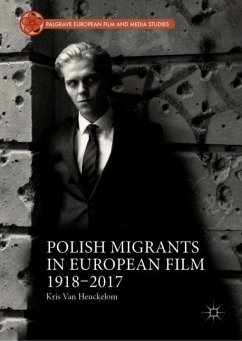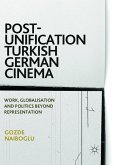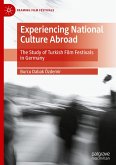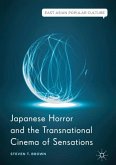This study explores the representation of international migration on screen and how it has gained prominence and salience in European filmmaking over the past 100 years. Using Polish migration as a key example due to its long-standing cultural resonance across the continent, this book moves beyond a director-oriented approach and beyond the dominant focus on postcolonial migrant cinemas. It succeeds in being both transnational and longitudinal by including a diverse corpus of more than 150 films from some twenty different countries, of which Roman Polanski's The Tenant, Jean-Luc Godard's Passion and Krzysztof Kieslowski's Trois couleurs: Blanc are the best-known examples. Engaging with contemporary debates on modernisation and Europeanisation, the author proposes the notion of "close Otherness" to delineate the liminal position of fictional characters with a Polish background. Polish Migrants in European Film 1918-2017 takes the reader through a widerange of genres, from interwar musicals to Cold War defection films; from communist-era exile right up to the contemporary moment. It is suitable for scholars interested in European or Slavic studies, as well as anyone who is interested in topics such as identity construction, ethnic representation, East-West cultural exchanges and transnationalism.
"The first thing to recommend the book is the timespan it covers. ... He is able to cover such a long period without losing focus ... . The book's greatest virtue, however, lies in the author's inherently dialectical approach: time and again, he reminds us that the image constructed of the Other reveals more about the host society than about the newcomers." (Masha Shpolberg, ZSPH Zeitschrift für Slavische Philologie, Vol. 78 (1), 2022)
"This study ... is written for students of film, but it provides an interesting counterpoint to studies based on Polish emigration itself. How Poles have been viewed by residents of the host countries over the last century of emigration for political, social, and economic reasons provides insight into Polish migration and its role in the national identity." (Gerard T. Kapolka, The Polish Review, Vol. 66 (1), 2021)
"The book could also be read as a tacit call for more variegated portrayals of expats (expat intellectuals, forexample) that do more than merely confirming what Western European viewers might already know of Eastern Europe." (Ewa Stanczyk, Studies in European Cinema, November 17, 2020)
"This study ... is written for students of film, but it provides an interesting counterpoint to studies based on Polish emigration itself. How Poles have been viewed by residents of the host countries over the last century of emigration for political, social, and economic reasons provides insight into Polish migration and its role in the national identity." (Gerard T. Kapolka, The Polish Review, Vol. 66 (1), 2021)
"The book could also be read as a tacit call for more variegated portrayals of expats (expat intellectuals, forexample) that do more than merely confirming what Western European viewers might already know of Eastern Europe." (Ewa Stanczyk, Studies in European Cinema, November 17, 2020)








